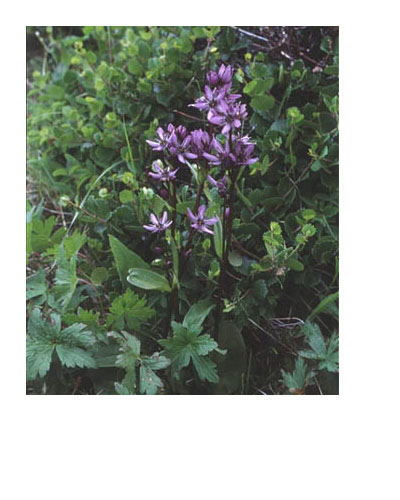Chiraita
Latin: Swertia Chirata
Therapeutic Action:
Medical Uses, and Dosage.—This drug possesses the tonic properties of gentian and similar bitters. It is valued in Hindustan, where it is much employed in urinary complaints with uneasiness in the region of the kidneys, frequent urging to urinate, which is accomplished with difficulty, and in cases of uric acid deposits. It is a remedy also for convalescence from exhausting sickness, and for atonic and nervous forms of dyspepsia. ---Medicinal Action and Uses---The true Chiretta has a yellowish pith, is extremely bitter and has no smell, an overdose causes sickness and a sense of oppression in the stomach. It acts well on the liver, promoting secretion of bile, cures constipation and is useful for dyspepsia. It restores tone after illness. Medicinal Uses Digestive; Hepatic; Stimulant. Chiretta is a traditional Ayurvedic herb. A strongly bitter tonic it is an excellent remedy for a weak stomach, especially when this gives rise to nausea, indigestion and bloating, and it has also been shown to protect the liver[254]. It is perhaps best known in India as the main ingredient in mahasudarshana churna, a remedy containing more than 50 herbs[254]. The plant has an interesting chemistry, similar in many respects to chirata , a widely used restorative tonic of the digestive system[238]. It also contains xanthones, which are reputedly effective against malaria and tuberculosis, and also amarogentin, a glycoside that may protect the liver against carbon tetrachloride poisoning[238]. The whole plant is an extremely bitter tonic digestive herb that lowers fevers and is stimulant[165, 238]. The herb has a beneficial effect on the liver, promoting the flow of bile, it also cures constipation and is useful for treating dyspepsia[4, 238]. The plant is harvested when the seed is setting and then dried for later use[4]. According to G. K. Nair and M. Mohanan, authors of "Medicinal Plants of India," this herb is an excellent drug for: intermittent fevers skin diseases intestinal worms bronchial asthma burning of the body regulating the bowels An infusion of the herb made in hot water with aromatics like cloves, cinnamon etc. is given in doses of half to one fluid ounce. Ayurvedic practitioners often prescribe this infusion in doses of two ounces twice a day before meals as a tonic to check hiccup and vomiting.
References:
- Nadkarni, Vol I, Pages 1184-85
- Leung & Foster. Pages 163-164
- Paranjape, Pages 137-138
Used in:
- Citazil Plus Capsules
- Lekorin Tablets
- Livnol Tablets
- Malarin Tablets
- Citazil Syrup
- Lekoril Syrup
- Dianex Tablets

Copyright 2013 Unexo Laboratories Pvt. Ltd. All Rights Reserved. Designed & Developed By: Credence Technologies


